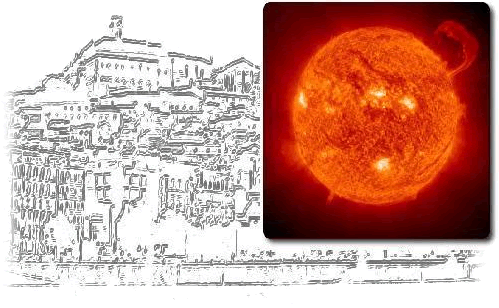|
|
|
|
|
|
|
|
|
|
|
|
|
Rui Pinto, Mr. - PhD |
|
IRAP, University of Toulouse, OMP/CNRS, Toulouse, France/td>
|
|
|
|
|
|
|
|
Session 4 - Speaker |
|
The slow and fast solar wind during the activity cycle |
|
R. F. Pinto, A. Rouillard; IRAP, University of Toulouse, OMP/CNRS, Toulouse, France |
|
|
|
The cyclic variations of the strength and geometry of the global
background magnetic field strongly affect the solar wind flow and cause the
segregation between the fast and slow wind flows. Fast wind flows develop
exclusively within coronal holes, while the slow solar wind streams from the
vicinities of the coronal hole boundaries (i.e, around streamers and
pseudo-streamers) and/or active regions. Besides, the fast and slow wind components
display different acceleration profiles, types of oscillations/waves, and ion
composition, despite the respective wind heating and acceleration mechanisms being
probably similar.
We investigate these problems jointly by performing numerical simulations of the
corona and solar wind covering an 11 yr activity cycle. The wind speeds we obtained
are in agreement with in-situ measurements (ULYSSES) and radio maps (IPS). The wind
speeds at all latitudes and moments of the cycle depend on two simple parameters
(related to the flux-tube amplitude and inclination), in addition to the traditional
expansion ratios in the WSA law commonly used in space weather applications. These
results were tested using different heating scenarios.
We also found that the calculated Alfvén radii and the global Sun's mass loss
rate vary considerably throughout the cycle (by a factor 4.5 and 1.6, respectively),
leading to strong temporal modulations of the global angular momentum flux and
magnetic braking torque, which has implications for the more general stellar wind
spin-down.
This is work is supported by the FP7 project #606692 (HELCATS). |
|
|
|
|
|
|
|




 









 |



